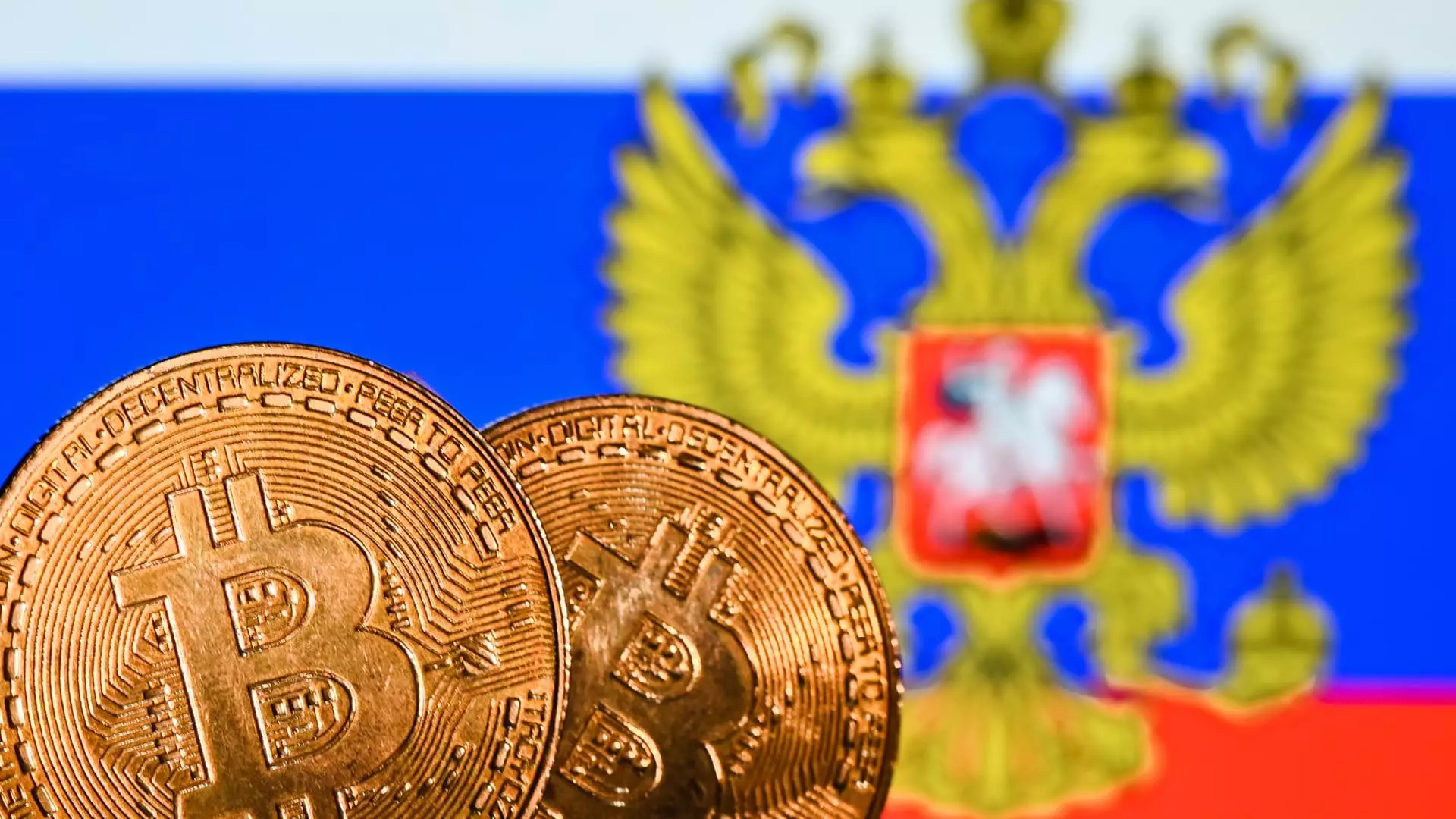The recent approval of a new law in Russia allowing the use of cryptocurrency for international payments marks a significant shift in the country’s financial landscape. The State Duma, Russia’s lower house of parliament, made the decision in response to ongoing pressure from Western sanctions. This move, spearheaded by Anatoly Aksakov, the head of the Duma, signals a historic moment that could have far-reaching implications for Russian businesses engaged in cross-border trade.
Mati Greenspan, CEO of Quantum Economics, highlighted the importance of Russia embracing cryptocurrencies, particularly Bitcoin, for international transactions. He emphasized that the decentralized nature of Bitcoin transactions provides a level of freedom that traditional financial systems cannot match. This move by Russia reflects a broader trend of increased adoption of Bitcoin and other cryptocurrencies in everyday commerce, driven by the inability of governments and banks to censor or block such transactions.
The approval of cryptocurrency for international payments comes at a time when Bitcoin prices have surged, more than doubling in the past year. Market optimism surrounding the approval of exchange-traded funds and halving events has contributed to Bitcoin’s current value of $66,000. This positive sentiment, coupled with Russia’s decision to embrace cryptocurrency, underscores the growing importance of digital assets in the global financial landscape.
Russia’s decision to allow businesses to use cryptocurrencies for cross-border trade is seen as a strategic response to escalating tensions with Western nations. In the wake of sanctions imposed by the U.S., European Union, and Britain following Russia’s invasion of Ukraine, the country has sought alternative financial solutions to navigate the restrictions placed on its financial sector and key individuals. By permitting the use of cryptocurrency for international payments, Russia aims to mitigate the impact of economic sanctions and facilitate trade with partners worldwide.
The Russian Central Bank’s decision to embrace cryptocurrency for cross-border payments represents a significant departure from its previous stance on digital assets. While the regulator had considered banning crypto transactions and mining earlier in 2022, it has now adopted a more proactive approach to utilizing cryptocurrencies for international payments. Central Bank Governor Elvira Nabiullina’s announcement that crypto-based payments will be implemented by the end of 2024 signals a fundamental shift in Russia’s monetary policy and economic strategy.
From a global trade perspective, Russia’s acceptance of cryptocurrency is expected to open up new opportunities for cross-border payments and transactions. By leveraging digital assets, Russian businesses can establish relationships with international partners that were previously hindered by U.S. sanctions. The move to embrace cryptocurrency is in line with the broader trend of sanctioned countries exploring alternative financial mechanisms to bypass restrictions and engage in international trade.
Despite concerns about the potential misuse of cryptocurrencies for illicit activities, proponents argue that digital assets can actually enhance transparency and security in financial transactions. The public nature of blockchain technology, which underpins cryptocurrencies, ensures a verifiable record of transactions that is resistant to tampering or alteration. By leveraging blockchain technology, countries like Russia can mitigate risks associated with illicit financial activities and enhance the integrity of their financial systems.
Russia’s decision to approve the use of cryptocurrency for international payments represents a significant step towards embracing digital innovation in the financial sector. This move not only reflects a shift in Russia’s monetary policy but also underscores the growing importance of cryptocurrencies in global trade and commerce. By leveraging the decentralized nature of cryptocurrencies like Bitcoin, Russia aims to navigate economic challenges posed by Western sanctions and unlock new opportunities for cross-border transactions.


Leave a Reply